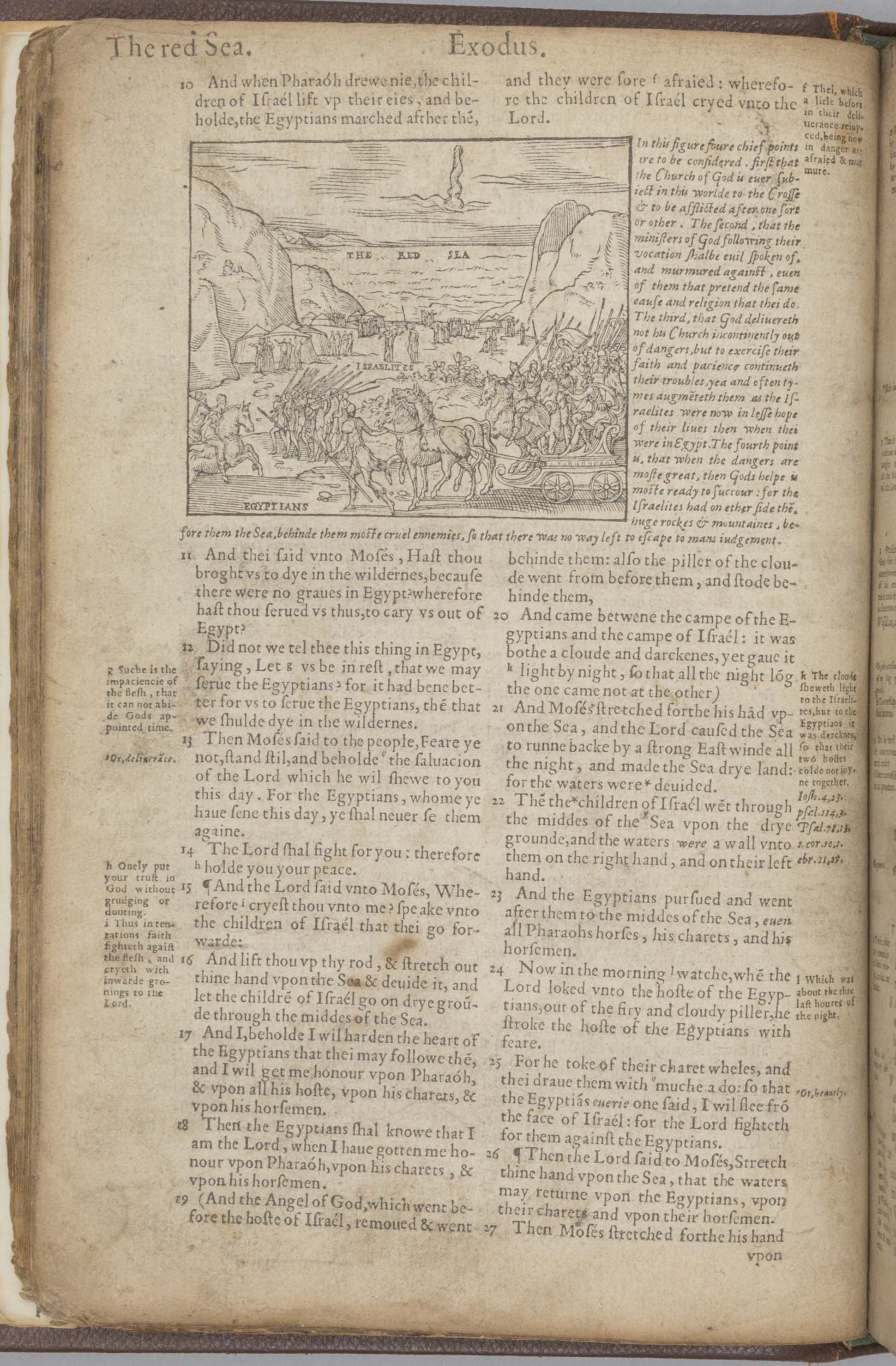
Geneva: R. Hall, 1560
[E.M.W.] 005 SR
Prepared by Protestant exiles in Geneva during Mary I’s reign and first published in this edition of 1560, the Geneva Bible was exceedingly popular for household use in England, Scotland and America in the late sixteenth and early seventeenth centuries, running through 140 editions before 1644. For fifty years the English and Scots learned much of their exegesis from it. It was, moreover, the Bible of Elizabethan and Jacobean poets and prose writers--including Shakespeare, through whose plays it resonates. Whilst the Geneva Bible was a landmark edition for dividing the text into verses and for translating the poetic and prophetic books of the Old Testament from the Hebrew for the first time, its most marked feature was its extensive notes giving definitions, variant translations, cross-references, chapter summaries, and doctrinal explanations. These glosses rendered the Geneva Bible the first study Bible in English. They furthermore marked it as Protestant and more specifically Puritan, teaching plain living and high thinking, and strengthening Puritanism in Britain. Within the Book of Revelation, some notes are distinctly anti-Roman, equating the Antichrist with the pope. James I’s irritation with the notes led to the commissioning of the King James Bible to replace it.